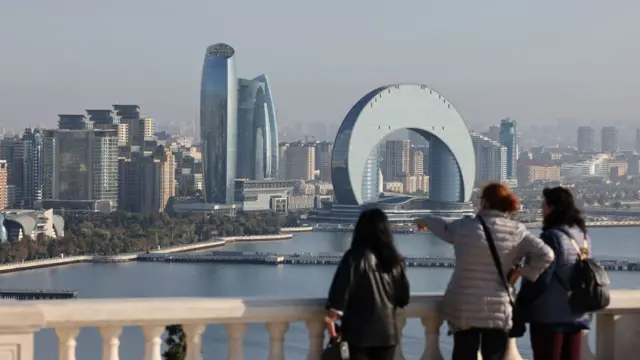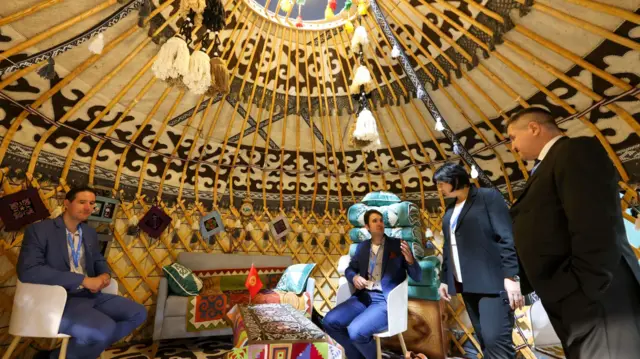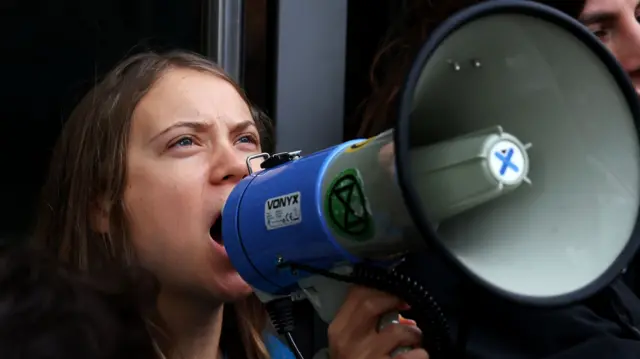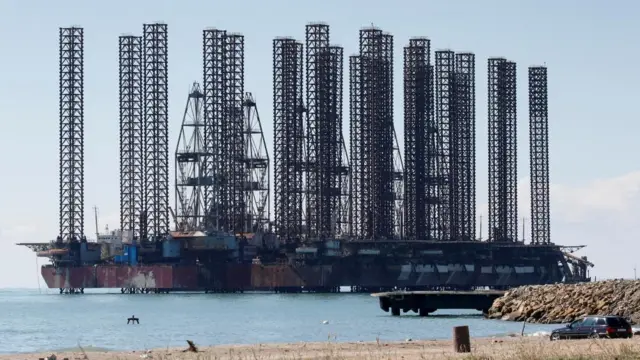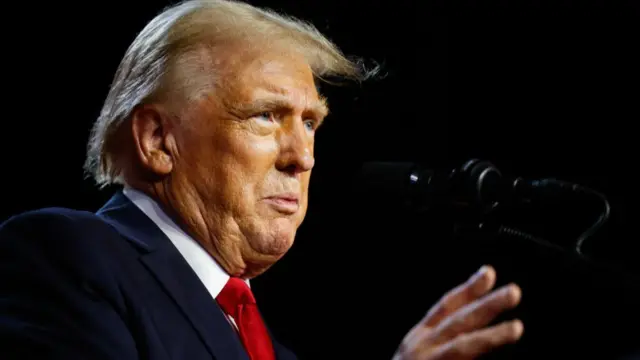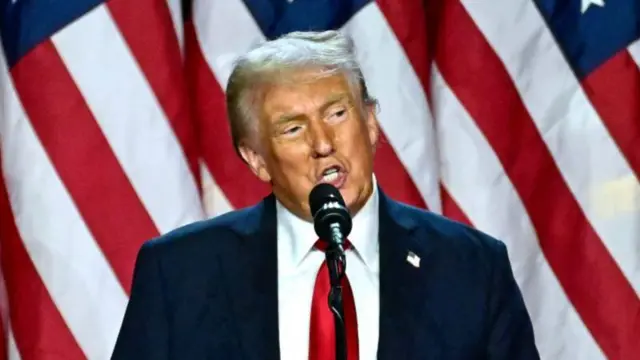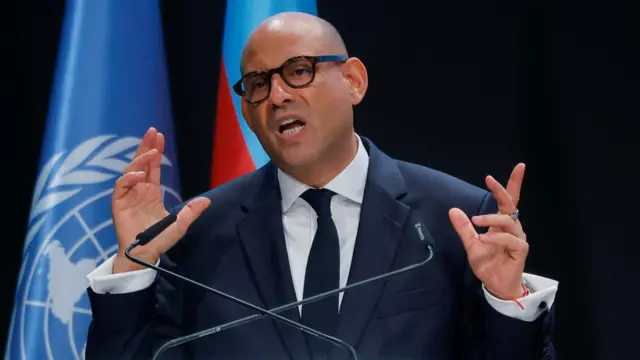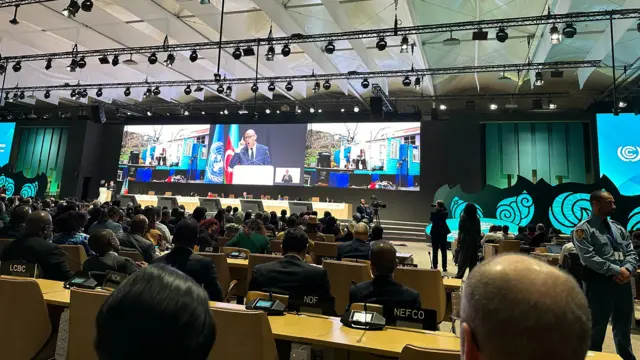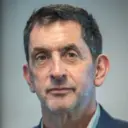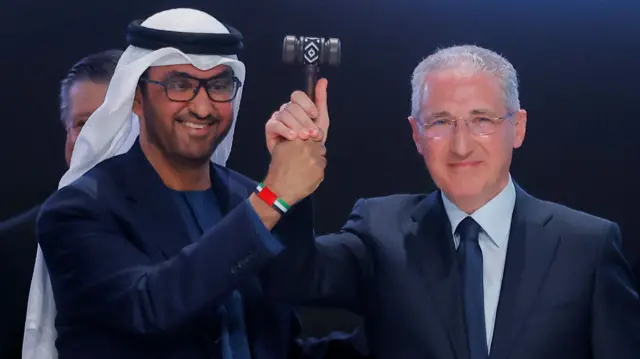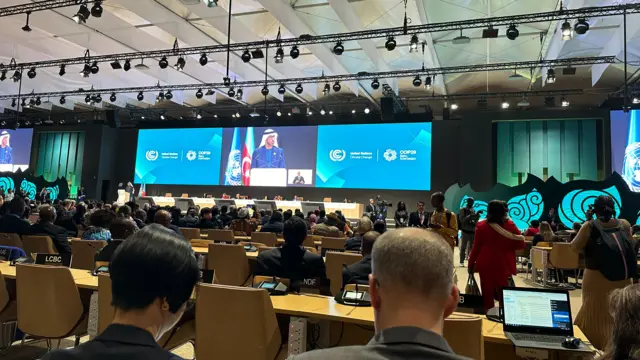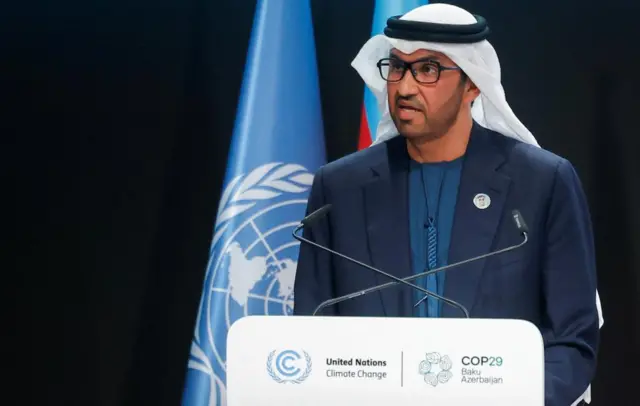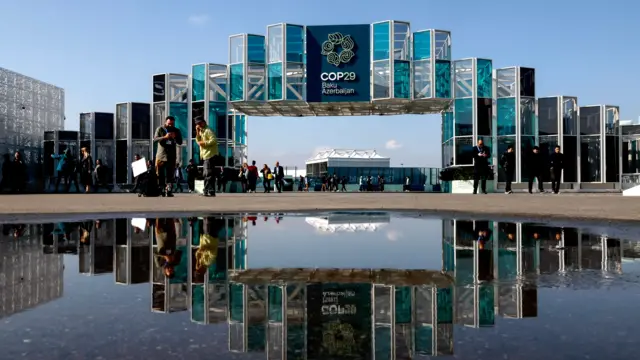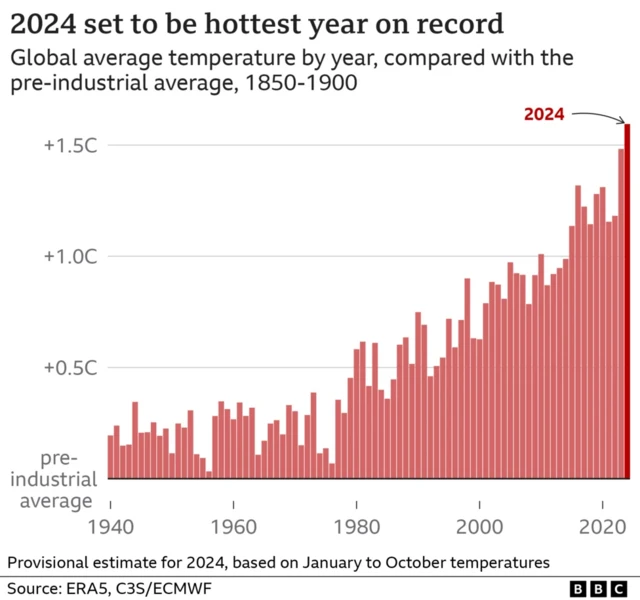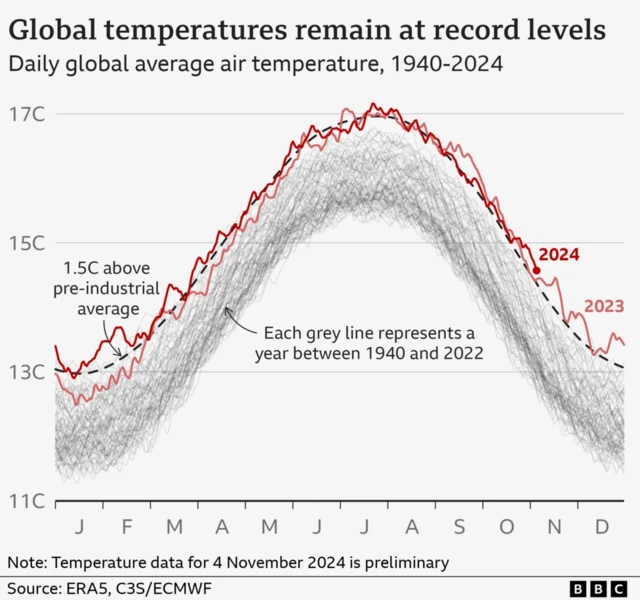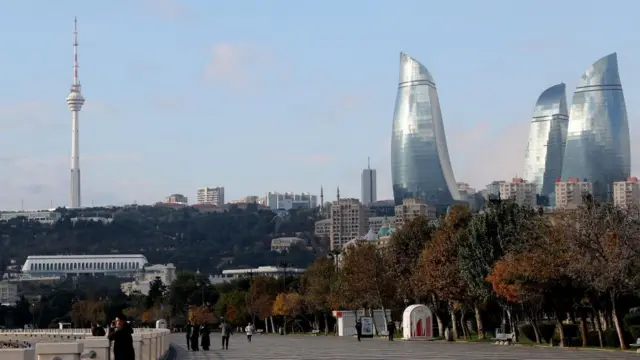COP hosts Azerbaijan to suffer in a warmer worldpublished at 10:18 GMT 11 November 2024
 Matt McGrath
Matt McGrath
Environment correspondent in Baku
COP29 hosts Azerbaijan have been making headlines for all the wrong reasons, with allegations that they are using this meeting to make deals on developing their vast gas resources found in the Caspian Sea.
This little-known country, squeezed between Russia and Iran in the Caucasus region, is now one of Europe’s biggest suppliers of oil and gas.
But as well as contributing to the causes of global warming, Azerbaijan is suffering major impacts.
A study, external released by Christian Aid, shows that the country will endure the most economic harm from rising temperatures in Eastern Europe.
By 2050, the country’s GDP - which measures the size of the economy - could shrink by 8.5%.
As well as getting hotter, the report forecasts Azerbaijan will suffer more erratic rainfall and severe flooding - with huge impacts on agriculture, tourism and increased tension over water supplies.
The report points out that this year's COP hosts current plans for cutting carbon emissions are rated as “critically insufficient”.
So it will be interesting to see if Azerbaijan comes up with a new, stronger carbon plan here at COP, given the implications for the country.

